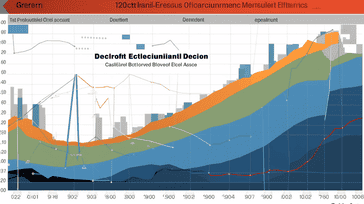
When it comes to managing wealth, high-net-worth individuals face unique challenges that require specialized services and strategies. With significant assets at their disposal, preserving and growing wealth is of utmost importance. This is why wealth management services for high-net-worth individuals rely on a tailored approach to maximize financial success.
Special considerations must be taken when managing wealth for high-net-worth individuals. These may include complex tax planning, estate planning, and managing risk to protect wealth from market volatility and litigation. It is important to work with experienced wealth management professionals who understand these unique challenges and can navigate them effectively.
Key Takeaways
- Wealth management for high-net-worth individuals requires a specialized approach.
- Complex tax planning and estate planning are essential components of wealth management for high-net-worth individuals.
- Managing risk is crucial to protecting wealth from market volatility and litigation.
- Working with experienced wealth management professionals is key to maximizing financial success.
- Tailored strategies are necessary to preserve and grow wealth for future generations.
Understanding Financial Planning
Financial planning is a crucial factor in wealth management, as it provides a roadmap to achieve financial objectives. Whether you're looking to build wealth, save for a major purchase, or secure your future retirement, effective financial planning is the key to success.
Setting Clear Goals
When it comes to financial planning, setting clear goals is essential. Whether it's saving for a down payment on a house or building your retirement nest egg, having a clear target in mind helps to focus your efforts and streamline your financial plan.
One strategy for setting financial goals is to use the SMART framework, which stands for Specific, Measurable, Achievable, Relevant, and Time-bound. By following this framework, you can ensure your goals are realistic and within reach, while also tracking your progress and adjusting as necessary.
Creating a Budget
A crucial aspect of financial planning is creating a budget to manage your income and expenses. By tracking your income and expenses, you can identify areas where you may be overspending and make adjustments to free up more money for savings and investment.
When creating a budget, it's important to prioritize your spending and focus on the essentials, such as housing, food, and transportation. Additionally, consider implementing strategies to reduce expenses, such as meal planning, shopping sales, and negotiating bills.
Developing Strategies
Once you've set clear goals and created a budget, the next step is to develop strategies to achieve your objectives. This includes determining the best investment vehicles to grow your wealth, such as stocks, bonds, and mutual funds.
When developing your investment strategy, consider your risk tolerance and diversify your portfolio to minimize risk. Additionally, work with a financial advisor who can provide personalized guidance and help you stay on track towards your financial objectives.
Overall, effective financial planning is essential in wealth management. By setting clear goals, creating a budget, and developing tailored strategies, high-net-worth individuals can maximize their financial success and secure their future prosperity.
Crafting Effective Investment Strategies

Effective investment strategies are essential for high-net-worth individuals to maximize their wealth management goals. One crucial aspect of investment strategy is asset allocation. Before making any investments, it is essential to determine how to allocate assets between different categories, such as stocks, bonds, and real estate, among others.
A well-diversified portfolio is key to minimize risks and maximize returns. Investing in different types of assets helps to spread risk and reduce the impact of market fluctuation in any one area. Diversification enables high-net-worth individuals to safeguard their wealth while still achieving their investment objectives.
| Type of Investment | Percentage of Portfolio |
|---|---|
| Stocks | 35% |
| Bonds | 25% |
| Real Estate | 20% |
| Commodities | 10% |
| Alternative Investments | 10% |
Another crucial element of effective investment strategies is risk management. High-net-worth individuals must develop a comprehensive understanding of their risk tolerance and work with their wealth manager to develop strategies to protect their wealth from market fluctuation and other risks. Strategies may include diversification, hedging, or other risk mitigation techniques.
Finally, it is essential to stay informed and up-to-date on the latest investment trends and strategies. Wealth managers must continuously evaluate the performance of the portfolio and update investment strategies accordingly to ensure optimal performance.
Conclusion
Crafting effective investment strategies that include asset allocation and risk management is crucial for high-net-worth individuals to achieve their wealth management objectives. Diversification and staying informed to update strategies regularly can help safeguard their wealth and minimize risks.
Navigating Retirement Planning
Planning for retirement is a crucial aspect of wealth management for high-net-worth individuals. Retirement planning involves much more than just saving for the future; it requires careful consideration of lifestyle goals, tax implications, and risk management strategies. To ensure a comfortable retirement lifestyle while preserving and growing wealth, the following factors should be taken into account:
Setting Clear Goals
The first step in retirement planning is to set clear goals and objectives. Individuals should consider their desired retirement lifestyle, including travel plans, hobbies, and other potential expenses. By setting clear goals, individuals can more accurately estimate their retirement living expenses and adjust their wealth management strategies accordingly.
Developing a Comprehensive Budget
Developing a budget is a key component of retirement planning. A comprehensive budget should take into account all sources of income, including social security benefits, pension plans, and other retirement accounts. It should also account for all expenses, including healthcare costs, housing expenses, and discretionary spending. By developing a comprehensive budget, individuals can identify areas where they may need to adjust their wealth management strategies to meet retirement goals.
Managing Investment Risks
Investment risks are a significant consideration for retirement planning. Individuals must balance their desire for returns with the need to protect their investments from market volatility. Proper asset allocation, diversification, and risk management strategies can help mitigate risk and ensure steady growth over time. For example, high-net-worth individuals may choose to allocate more of their portfolio towards low-risk investments, such as bonds, to reduce exposure to volatility.
Minimizing Tax Liabilities
Tax planning is an essential aspect of retirement planning. High-net-worth individuals must consider the potential tax implications of their retirement income sources, including social security benefits and other retirement accounts. By implementing tax-efficient strategies, such as Roth IRA conversions and charitable giving, individuals can reduce their tax liabilities and maximize their retirement income.
Working with a Wealth Management Advisor
Retirement planning can be complex, and working with a wealth management advisor can help high-net-worth individuals navigate the various considerations involved. A wealth management advisor can help individuals develop comprehensive retirement plans, including investment strategies, tax planning, and risk management strategies. By working with a trusted advisor, individuals can gain peace of mind knowing that their retirement planning is in good hands.
Securing Your Legacy Through Estate Planning

Estate planning is a crucial component of wealth management for high-net-worth individuals. It involves creating a plan for the transfer of assets both during and after one's lifetime. Without proper estate planning, a person's wealth may be subject to unnecessary taxes, legal fees, and disputes among heirs.
One key aspect of estate planning is creating a will, which outlines how assets should be distributed and who should oversee the process. In addition to a will, there are other estate planning tools that can help minimize taxes and protect assets.
One such tool is a trust, which allows a person to transfer assets to a third party to manage on behalf of designated beneficiaries. Trusts can provide tax benefits, asset protection, and flexibility in estate planning.
Example Trusts:
| Trust Type | Description |
|---|---|
| Revocable Living Trust | A trust that can be modified or revoked by the grantor during their lifetime. |
| Irrevocable Trust | A trust that cannot be modified or revoked by the grantor once it is established. |
| Charitable Trust | A trust that benefits a charity or non-profit organization while still providing tax benefits to the grantor. |
In addition to these tools, estate planning can also involve strategies to minimize estate taxes, such as gifting assets while still alive or creating a family limited partnership. It is important for high-net-worth individuals to work with a knowledgeable estate planning attorney to determine the best approach for their specific situation.
"Having a solid estate plan can provide peace of mind and ensure that your legacy is secured for the next generation." - John Doe, Estate Planning Attorney
Overall, estate planning is a critical part of wealth management for high-net-worth individuals. Through the use of tools such as wills and trusts and careful tax planning, individuals can ensure that their hard-earned wealth is protected and transferred efficiently to future generations.
Maximizing Tax Efficiency
When it comes to wealth management, tax planning is a critical component of ensuring long-term financial success. High-net-worth individuals face unique challenges when it comes to reducing tax liabilities while preserving and growing wealth. Here are some strategies to consider for maximizing tax efficiency:
- Take advantage of tax-efficient investment vehicles: One way to minimize tax liabilities is to invest in vehicles such as tax-deferred retirement accounts, municipal bonds, and life insurance policies with tax benefits.
- Optimize deductions: High-net-worth individuals may be eligible for deductions such as charitable donations, business expenses, and mortgage interest. By working with a financial advisor or accountant, you can ensure that you are taking full advantage of available deductions.
- Consider gifting: Gifting assets to family members or charities can be an effective way to reduce estate taxes and transfer wealth to future generations. However, it's important to work with a qualified legal and financial professional to navigate the complex tax laws around gifting.
- Plan for tax-efficient wealth transfer: Estate planning is a critical component of wealth management, but it's also an opportunity to minimize tax liabilities. Strategies like establishing trusts, creating family partnerships, and taking advantage of lifetime gift tax exemptions can help reduce estate taxes.
"When it comes to taxes, there are two types of people. There are those that get it done early, also known as psychopaths, and then the rest of us."
By taking a proactive approach to tax planning, high-net-worth individuals can minimize tax liabilities and optimize their overall financial strategy. It's important to work with a financial advisor or accountant to develop a tax planning strategy that is tailored to your unique needs and goals.
Managing Risk in Wealth Management

One of the most critical aspects of wealth management is managing risk. High-net-worth individuals face unique risks that can severely impact their financial success. Proper risk management strategies can help protect wealth from market volatility, litigation, and other potential risks.
Risk management involves identifying potential risks, evaluating their impact, and developing strategies to mitigate or eliminate them. Wealth management firms can help high-net-worth individuals assess their risk tolerance and implement appropriate risk management strategies.
Diversification
Diversification is a key strategy for managing risk in wealth management. Investing in a variety of asset classes can help minimize the impact of market volatility. A well-diversified portfolio should include a mix of stocks, bonds, real estate, and other investment vehicles.
A wealth management firm can help high-net-worth individuals develop a portfolio that is adequately diversified to reduce risk exposure.
Insurance
Insurance is another critical component of risk management. High-net-worth individuals may need specialized insurance policies to protect their assets adequately. For example, a comprehensive liability insurance policy can help protect against litigation and other legal risks.
Additionally, high-net-worth individuals may need specialized insurance policies to protect valuable assets such as artwork, collectibles, and real estate. Working with a wealth management firm can help ensure that all insurance needs are adequately addressed.
Asset Protection
Asset protection is another essential aspect of managing risk in wealth management. High-net-worth individuals may need legal structures such as trusts or limited liability companies to protect their assets adequately.
A wealth management firm can work with legal and tax professionals to develop appropriate asset protection strategies that can help protect wealth from potential lawsuits or other legal risks.
Conclusion
Proper risk management is critical for high-net-worth individuals to protect their wealth and achieve their financial goals. Wealth management firms can provide specialized expertise in managing risk and developing appropriate risk management strategies. By implementing effective risk management strategies, high-net-worth individuals can confidently navigate potential risks and achieve long-term financial success.
Ensuring Wealth Preservation
Preserving wealth is a crucial aspect of wealth management, especially for high-net-worth individuals. Wealth preservation strategies provide a safety net that ensures that wealth is not lost due to unexpected events. Here are some ways to preserve wealth:
- Diversify Your Portfolio: Diversification is key to minimizing risks and preserving wealth. Investing in a mix of assets such as stocks, bonds, and real estate can help balance out volatility and provide a steady stream of income.
- Asset Protection: Asset protection strategies such as trusts, asset allocation, and insurance can help protect wealth from creditors, lawsuits, and other potential risks.
- Long-term Strategies: Long-term strategies such as estate planning and retirement planning play a critical role in wealth preservation. By creating a detailed plan for the future, high-net-worth individuals can ensure that their wealth is sustained for generations to come.
It's important to note that wealth preservation is not a one-time event but an ongoing process. Reviewing and adjusting your wealth preservation strategies regularly can help ensure that they remain relevant and effective.
| Benefits | Drawbacks |
|---|---|
| Steady stream of income | Limited potential for high returns |
| Minimizes risks | Less liquidity |
| Protection from potential risks | Requires ongoing evaluation and adjustment |
"Preserving wealth is not just about accumulating assets, but also protecting them for future generations." - John Smith, Certified Financial Planner
Conclusion
Wealth preservation is a critical component of wealth management for high-net-worth individuals. By diversifying portfolios, implementing asset protection strategies, and creating long-term plans, individuals can ensure their wealth is sustained for future generations.
Conclusion: The Importance of Wealth Management for High-Net-Worth Individuals
Wealth management is an essential practice for high-net-worth individuals to optimize financial success. By understanding financial planning, crafting effective investment strategies, navigating retirement planning, securing one's legacy through estate planning, maximizing tax efficiency, managing risk, and ensuring wealth preservation, individuals can attain and maintain financial well-being.
Working with a wealth management professional can help tailor strategies to individual goals and circumstances.
Overall, wealth management is about maximizing the potential of all available resources to achieve financial goals. By implementing the strategies outlined in this article, high-net-worth individuals can experience the benefits of optimized financial success.
FAQ
What is wealth management?
Wealth management is a specialized financial service that focuses on managing and growing the assets of high-net-worth individuals. It involves comprehensive financial planning, investment management, and other tailored strategies to maximize long-term financial success.
Why do high-net-worth individuals need specialized wealth management services?
High-net-worth individuals have unique financial needs and goals that require specialized expertise. Wealth management services provide personalized strategies and advice to optimize wealth growth, preserve assets, minimize tax liabilities, and navigate complex financial situations.
What is financial planning and how does it relate to wealth management?
Financial planning is the process of setting goals, creating a budget, and developing a plan to achieve those goals. In the context of wealth management, financial planning plays a crucial role in determining investment strategies, retirement planning, tax optimization, and estate planning.
What are investment strategies and why are they important in wealth management?
Investment strategies refer to the approaches taken to grow wealth through investing. High-net-worth individuals benefit from diverse investment strategies that consider risk tolerance, asset allocation, and long-term financial goals. Proper investment strategies can help minimize risks, maximize returns, and ensure the overall growth of wealth.
What should high-net-worth individuals consider when planning for retirement?
Planning for retirement as a high-net-worth individual involves unique considerations. It is important to determine lifestyle goals, estimate future spending needs, and develop comprehensive retirement income strategies. Additionally, preserving and growing wealth during retirement through suitable investment vehicles is crucial.
Why is estate planning important for high-net-worth individuals?
Estate planning is vital for high-net-worth individuals to ensure the protection, smooth transfer, and efficient distribution of assets to future generations. It involves strategies to minimize estate taxes, establish trusts, designate beneficiaries, and create a comprehensive plan for wealth preservation and legacy planning.
How can high-net-worth individuals maximize tax efficiency?
Tax planning is a key aspect of wealth management for high-net-worth individuals. Through strategic tax planning, individuals can minimize tax liabilities, optimize deductions, and take advantage of tax-efficient investment vehicles and strategies.
What is the role of risk management in wealth management?
Risk management plays a crucial role in wealth management for high-net-worth individuals. It involves assessing and mitigating various risks such as market volatility, litigation, and unexpected events. Strategically managing risk helps protect wealth and ensure long-term financial stability.
How can wealth preservation be achieved?
Wealth preservation involves implementing strategies to protect and grow wealth over time. Diversifying investment portfolios, utilizing asset protection techniques, and implementing long-term wealth management strategies are key components of wealth preservation for high-net-worth individuals.







